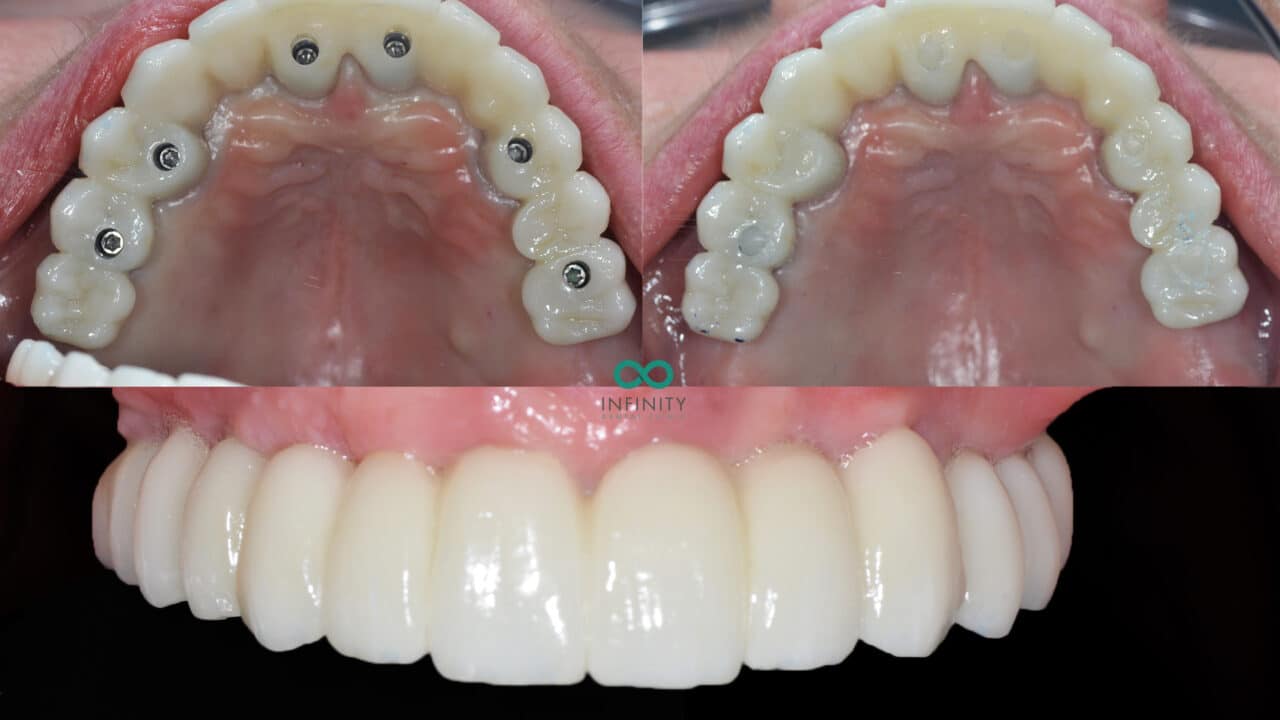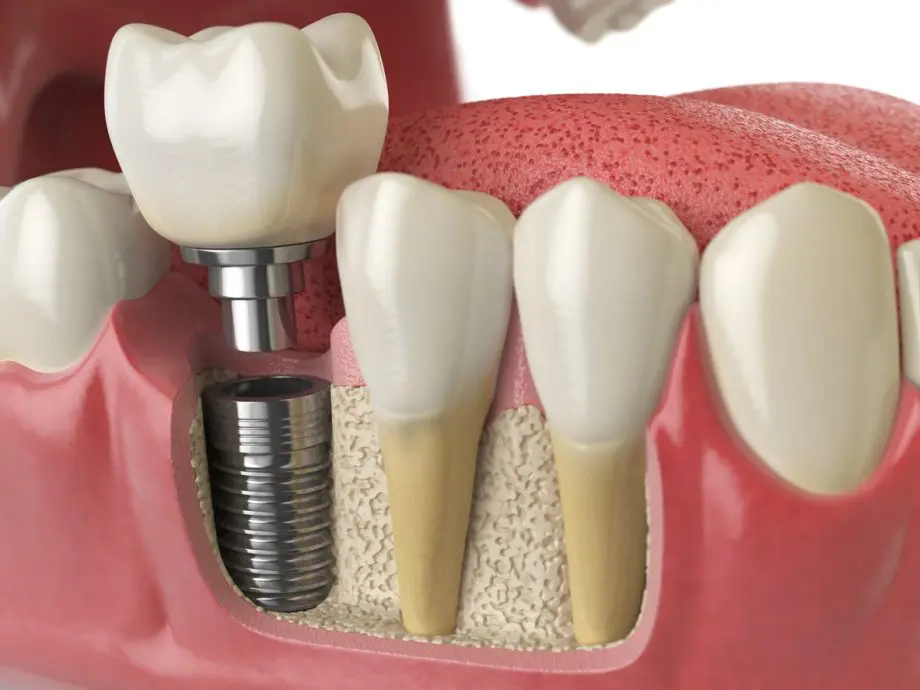Dental Clinic Hartford OH Frequently Asked Questions About Dental Implants
Johnstown Dental Johnstown OH Frequently Asked Questions About Dental Implants
Dental implants for people with gum disease present a novel set of challenges and concerns. Gum disease, also known as periodontal disease, affects the supporting structures of the teeth, together with the gums and the bone. why not try this out This condition can end result in irritation and infection, resulting in tissue destruction that compromises the soundness of natural teeth. important site For individuals affected by moderate to severe gum disease, learn this here now achieving a healthy foundation is paramount before contemplating dental implants.

The initial step for anyone with gum disease is to seek skilled remedy to address the underlying condition. This usually involves thorough cleanings known as scaling and root planing, which purpose to remove plaque and tartar buildup that harbor micro organism. In some instances, sufferers might require extra therapies such as antibiotics and even surgery to revive gum health. Only after the gums have adequately healed and regained stability should one contemplate shifting ahead with implant placement.
Johnstown Dental Sunbury OH Full Mouth Dental Implants
Once the gum disease is managed, understanding the extent of the bone loss is essential. Periodontal disease can result in the recession of the bone that helps the teeth, making the jaw much less able to accommodate dental implants. A comprehensive analysis, including imaging research similar to X-rays or 3D scans, is essential in determining how much bone is current and whether grafting procedures could additionally be necessary.
Bone grafting is a standard procedure for these with insufficient bone quantity. During this course of, bone materials is added to enhance the prevailing bone structure. This could be created from numerous sources, including artificial materials or the patient's own bone harvested from another site. Bone grafting not solely creates a strong base for implants but additionally encourages new bone growth in the space.
Dentist Office Hartford OH Types of Dental Implants
After the bone grafting procedure, you will need to give ample time for healing. This healing time can vary depending on the individual’s health and the complexity of the remedy. In some cases, it would take several months before proceeding with dental implants. Patience during this stage is significant as speeding the process can compromise general results and long-term success.
Once adequate bone has shaped, the dental implant procedure can start. The implant, a titanium post, is surgically positioned into the jawbone. This submit acts like a root for a replacement tooth, and over time, a course of referred to as osseointegration happens. Osseointegration is essential for the soundness of the implant and includes the bone growing around the implant, firmly securing it in place.
Following implant placement, the healing course of continues. During this era, the soft tissues should heal around the implant with out infection or problems. Regular follow-ups with a dental skilled are essential to monitor healing and handle any concerns that may arise.
For people with a history of gum disease, meticulous oral hygiene is crucial each before and after implant placement. Maintaining clear gums and teeth helps prevent re-infection and ensures the long-term success of the implants. This includes common dental check-ups, daily brushing, flossing, and generally using antimicrobial rinses as beneficial by a dentist.
Premier Dental New Albany OH Your Local Guide to Dental Implants
Factors like smoking and sure medical conditions can adversely affect the success of implants for those with gum disease. Smoking, for example, can hinder blood circulate and therapeutic, whereas conditions like diabetes can decelerate recovery and improve the risk for problems. Addressing life-style factors is important to maximize the chance of successful outcomes.
The journey of acquiring dental implants as an individual with gum disease can be complex, nevertheless it often leads to vital improvements in quality of life. Many individuals report elevated shallowness, enhanced oral functionality, and a renewed sense of confidence. Properly positioned implants can restore the ability to eat, speak, and smile without discomfort or insecurity.
In conclusion, dental implants for individuals with gum disease necessitate a radical understanding of the extra steps required to ensure success (Premier Dental Sunbury OH). It involves effectively managing gum health, addressing any underlying bone loss, and maintaining impeccable oral hygiene. With the right strategy, people can obtain lasting results and regain operate and aesthetics in their smiles. It is crucial to seek the assistance of with experienced dental professionals who can guide sufferers by way of every step of the process, ensuring the best possible outcomes
Dentists Columbus OH Dental Implants Cost Breakdown: What You Need to Know

- Dental implants can nonetheless be an possibility for individuals with gum disease, but thorough evaluation and therapy are crucial previous to the process.
- Addressing gum disease usually entails deep cleansing procedures, similar to scaling and root planing, to scale back inflammation and promote gum health.
- A multi-disciplinary approach is commonly beneficial; collaboration between periodontists and oral surgeons can enhance outcomes for sufferers requiring dental implants.
- Smoking and poor oral hygiene can exacerbate gum disease and compromise implant success; cessation and improved care are essential for optimum results.
- Bone density assessment is necessary, as superior gum disease can result in bone loss, influencing the type of implant and placement methods used.
- Implants placed in areas affected by gum disease might require additional help like bone grafting to determine a stable basis for the implant.
- Regular follow-ups may be needed to watch gum health after implant placement, guaranteeing that the healing process is proceeding without problems.
- Patients with a history of gum disease may have a higher risk of peri-implantitis, making diligent oral hygiene an important part of long-term care.
- Educating sufferers about maintaining periodontal health post-implant reduces the chances of issues and improves the longevity of the implants.
- Personalized care plans that embrace each restorative and periodontal therapies can improve the overall success charges for implants in gum disease patients.undefinedWhat are dental implants, and might folks with gum disease obtain them?
Dental implants are artificial tooth roots placed into the jawbone to help replacement teeth. While people with gum disease can receive implants, it is essential to manage and treat the gum disease first to ensure successful integration and scale back the chance of implant failure.
Smile Care Galena OH The Benefits of Dental Implants: Why Choose Them?
How does gum disease have an result on dental implant success?
Gum disease can compromise the bone and tissue surrounding implants, leading to greater failure rates. Successful implantation relies on healthy gums and bone; thus, addressing and treating gum disease is important before contemplating implants.
Dentist Office Hartford OH Dental Implants: Options, Costs, and Care
What treatment options can be found for gum disease before getting dental implants?
Treatment options might embody deep cleaning (scaling and root planing), antibiotics, or extra superior procedures like pocket discount surgery. These remedies goal to revive gum health, making implants a viable possibility.
Mono Dental Implants Columbus OH Step-by-Step Guide to Dental Implant Procedures

How long is the recovery process for dental implants in gum disease patients?
Recovery can differ, however usually, the therapeutic interval could take a number of months. After the preliminary implant placement, the jawbone wants time to fuse with the implant, and any gum disease remedy prior can also extend the general timeline.
Are there any risks concerned with dental implants in case you have a historical past of gum disease?
Dentists Galena OH Are Dental Implants Permanent? What You Should Know
Yes, individuals with a historical past of gum disease face higher risks of implant failure, infection, and issues if the disease is not adequately managed before the process. A thorough dental analysis and remedy plan are crucial.
What ought to I talk about with my dentist before getting dental implants with gum disease?
Discuss your medical historical past, current oral health, treatment options for gum disease, potential risks, and the timeline for each gum disease remedy and implant surgery. Clear communication helps in formulating an effective therapy plan.
Can way of life adjustments improve the probabilities of profitable dental implants for patients with gum disease?
Pediatric Dentist Alexandria OH Dental Implant Services: Find the Best in Your Area
Yes, adopting healthier habits, similar to quitting smoking, bettering oral hygiene, and maintaining common dental visits, can significantly enhance the possibilities of profitable dental implants and total gum health.
Is it potential to have crowns placed on implants right away if I have gum disease?
Not usually - Dental Implants Hartford OH. Immediate placement of crowns is normally avoided in sufferers with gum disease, as it can increase the chance of complications. It’s best to allow for therapeutic and proper gum health before attaching crowns
Dentist Office Galena OH The Benefits of Dental Implants: Why Choose Them?
How usually ought to I see my dentist after getting dental implants if I previously had gum disease?
Regular follow-ups, sometimes every three to 6 months, are important for maintaining dental implants, especially for these with a history of gum disease. Premier Dental Condit OH. These visits assist monitor gum health and the integrity of the implants